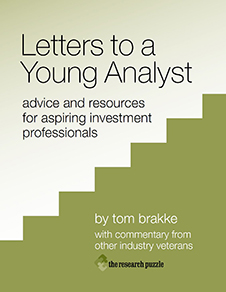
- Monday, March 21st, 2011
- anne berkshire hathaway
-
One of the oddest stories to hit the finance blogosphere in awhile is the one that began with a post by Dan Mirvish in the Huffington Post.Huffington Post | It was published on March 2. Supposedly when the actress Anne Hathaway graces the news, the stock of Berkshire Hathaway goes up.
At a minimum it’s a clever story, connecting our love of celebrity (in Hollywood and on Wall Street) with the algorithmic culture that drives trendy websites (like Huffington) and news trading strategies alike. Throw in an electronic movie poster of the Oracle and Miss Hathaway in the altogether and it was bound to gain attention. The Atlantic picked up the story a few days ago,The Atlantic | This one was written by Alexis Madrigal. and it’s been on the twitter and blog circuit ever since, helped out by some quotes from John Bates, a computer scientist who helps hedge funds with their algorithmic strategies.
“We come across all sorts of strange things in our line of business, strange correlations,” Bates is quoted as saying. “And I’ve had a lot of interest in this for a long time because it’s really often the secret source for certain hedge funds.”
The comments on the two stories point out the silliness of picking out a few dates that appear to make the case (although there were actually eight instances cited — way more than the six observations that some of the commenters were scoffing at). Since the writers of the articles didn’t bother to look at how Berkshire did relative to the market on those days, I labored over that project and discovered that it was real alpha — the stock only underperformed on one of those days. (I’m sure we will soon be treated to a treatise that explores the hypothesis in even greater depth. It will probably note that the highest price paid for Berkshire in the last two and a half years was on the day after the Oscars. Hmmm.)
There are some correlations that are easy to spot. Both Buffett and Hathaway have that intangible known as pluck, and they play to the camera better than their counterparts, although that’s a lot harder in her business than in his.
Underneath the veneer are some interesting questions for investors, one of which is not, “Should I buy Berkshire in advance of her next movie?” The rise of algorithmic trading is, by design, going to lead to some notable errors. Is this one of them? Who knows.
The longstanding ritual of trying to “correlate everything against everything,” as Bates indicates trading firms do, is the nature of investing. Most of us just do it in slow motion, trying to piece together connections in information — whether qualitative or quantitative or visual — that we think can give us an edge. But when a computer is stripping bits and pieces on the fly to send trades automatically, there are bound to be some unusual effects.
Until the misses are very large or disruptive for a firm, we won’t hear of them.New York Times | The AXA Rosenberg one was brutal for that firm, but it was not a news-related strategy. But the increase in algorithmic trading and related strategies has changed the way that securities trade. While we joke about this story, it’s part of a new market structure that has altered the playing field for investors, and those changes appear to be intensifying.
At a minimum, tactics need to be adjusted. Taking that message to heart, I wanted to do a paired trade with the long I established in Anne Berkshire Hathaway. I figured that a short sale of James Franco-American Spaghetti would make sense, but it’s a part of Campbell Soup, so it wasn’t quite right. I’ll keep looking.
